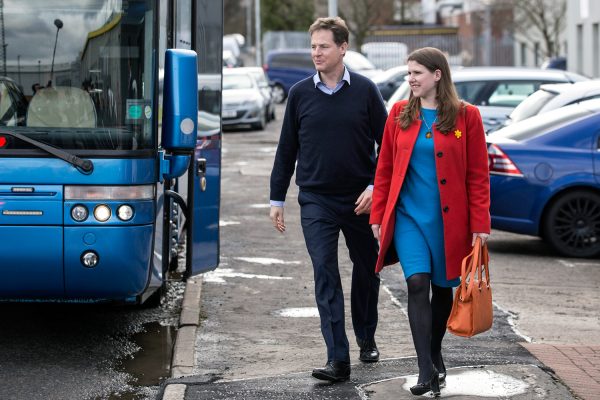
British politics hasn’t given liberals hope in recent years.
In 2015, we called for another Conservative-Liberal coalition. When the Conservative Party won an outright majority that year and veered to the right, embracing Brexit with a gusto, we switched to the Liberal Democrats. We still supported Ruth Davidson’s Conservatives in Scotland in 2017, but she is gone and with her any hope of moderation on the right.
Boris Johnson, who once described himself as a liberal, has made common cause with the reactionaries in his party to take power; forced out 21 principled moderates who opposed his Brexit policy, including ten former cabinet ministers, two former chancellors and one former deputy prime minister; and unlawfully suspended Parliament in an attempt to prevent debate on his Brexit deal, which, for all his bluster, is essentially the deal the EU offered two years ago.
Worst of all, Johnson frames this election as a choice between “the people” and Parliament. That is the sort of insidious rhetoric which paves the way for the erosion of liberal democracy.
Labour fanaticism
If the Conservatives have a leader who will do and say anything to retain power, Labour has one who doesn’t appear to have changed his mind on a single issue in 45 years. Jeremy Corbyn’s supporters see this as a virtue. We worry it betrays a fanaticism.
Worse, Corbyn has turned a blind eye to antisemitism on the left and sides with left-wing autocrats in Latin America against half-imagined American imperialism.
Corbyn won’t come out in favor of remaining in the EU, proposing to renegotiate Britain’s withdrawal only to remain neutral in a subsequent second referendum.
In 2010, Gordon Brown warned voters they couldn’t trust the Conservatives with the economy or the Liberal Democrats with foreign policy. Now they can’t trust his party with either.
Labour proposes to add at least £80 billion (according to its own, modest estimate) to £840 billion in yearly public spending — an increase the size of Greece’s entire national budget — to pay for free college education, subsidized housing, universal child care and the (re)nationalization of energy distribution, the mail, railways and broadband Internet.
Least bad option
The Liberal Democrats are again the least bad option in the election on Thursday. Their economic program is balanced. We don’t like their plan to raise corporate tax from 19 to 20 percent, but it’s mild compared to Labour’s proposed rate of 26 percent, and it’s a fair measure to help pay for free child care, hiring more teachers and investing in energy and transportation. The Liberal Democrat plan would keep borrowing to a minimum. They have also climbed down from their opposition to the Trident nuclear deterrent.
Our main reservation is their promise to stop Brexit.
We agree leaving the EU has only downsides, but it is the will of the British people. We are sympathetic to the argument that, in a democracy, people have the right to change their mind. On the other hand, voters were told the outcome of the 2016 referendum would be binding.
Life after Brexit
If Brexit must happen, we want the United Kingdom to remain as close to the EU as possible — to minimize the economic impact, but also because the rest of Europe would be better off with Britain as a diplomatic and security partner.
A no-deal exit would be calamitous. But even after a regulated withdrawal, Britain will need to negotiate its future relationship with the remaining 27. A strong Liberal Democrat bloc in Parliament might be able to rein in the two major parties’ worst instincts.
Rightwingers’ fantasies of a “Global Britain” or a reinvigorated Anglosphere are just that. Corbyn is more interested in deepening ties with likeminded leftists around the world than he is in safeguarding Britain’s national interest, and he has repeatedly parroted the Russian talking point that NATO “provocations” are to blame for Russia’s aggression in the East.
The reasonable policy is for Britain to stick to its friends and trading partners in Europe. If it does somehow manage to breathe new life into its “special relationship” with the United States, so much the better, but a potentially futile appeasement of America must not come at the expense of Britain’s cross-Channel relations.
